Why do we often find ourselves attracted to narcissists? Whether it’s being drawn or attracted to narcissistic men, or wondering why are narcissists so attractive, many of us end up in a relationship with one, leaving us questioning our choices. Let’s explore the reasons why you are attracted to narcissistic men.
You’ve done all the work. You’ve been there & done that. You’ve come to know yourself and your past, but you still can’t resist those delicious grandiose men.
Like an incredibly rich black forest gateaux, they look great, taste amazing, but after a while the glamour palls. After a few weeks of chocolate and cream, you crave a good old fashioned chicken salad with freekeh.
But why, oh why do you still find yourself looking into the refrigerated shelves, staring longingly at the layers of dark chocolate, cream and sour cherries.
Related: 8 Major Reasons You’re Attracted to Narcissists and How to Break the Cycle
Why Are We Attracted To Narcissists?
Narcissism researchers Brunell and Campbell liken having a relationship with a narcissist to eating chocolate cake. It might be appealing in the short term, but over time it is a very bad idea:
“The [narcissist’s] partner has a positive initial experience and negative long-term experience (with the negative long-term experience being significantly more negative than the narcissist’s own experience).
The partner will see his or her outcomes become significantly more negative over time. This is the natural downward spiral of getting involved with a narcissist.”…narcissists (especially those who are more on the grandiose side) are initially incredibly attractive….to everyone.
Projecting an aura of sexy confidence with perhaps just a hint of arrogance, they draw an admiring crowd. Eventually most people get bored…or fed up, or recognise that they are being love bombed…and gaslit.”
Which is the way of most narcissists.
“Narcissists have a set of qualities — social confidence, likability, charm — that are optimal for relationship initiation, but when combined with another set of qualities — low empathy, self-centeredness, the use of others for esteem maintenance — are destructive to relationship functioning.
As a consequence, narcissists repeatedly initiate new relationships, damage the relationship and hurt their partners, and then move on to another relationship. Unfortunately, this is the optimal path for narcissists given their make-up, but non-optimal for their partners or the social structure.” – Brunell and Campbell
In their study of narcissism and romance, Brunell and Campbell asked individuals to compare past dating relationships with narcissistic and non-narcissistic partners.
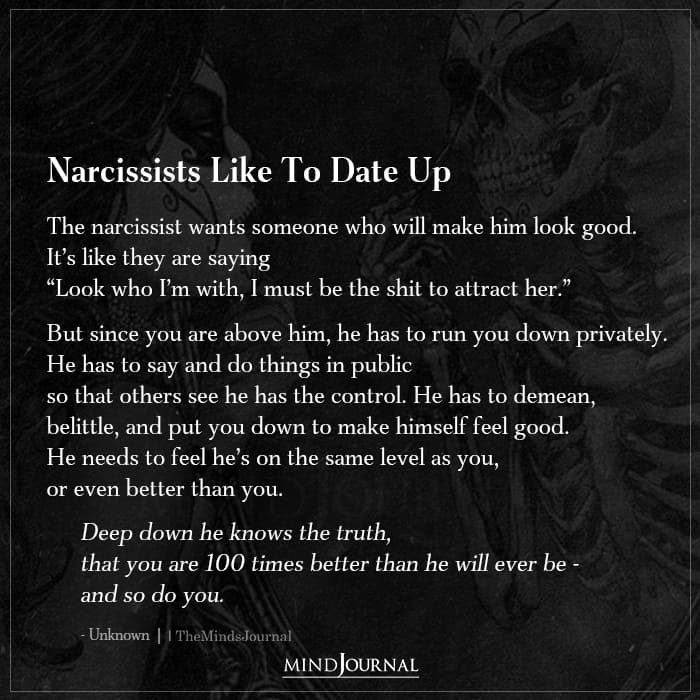
“When asked about the worst part of the relationship, participants revealed that the narcissistic ex-partner was self-centered, materialistic, deceptive, and controlling. …They felt the narcissist used them and played games with them.
…Their perception of the narcissist changed drastically over the course of their relationship, and their satisfaction with the relationship plummeted. Consequently, they reported that they regretted getting involved with the narcissistic ex-partner in the first place because the relationship took a large emotional toll.”
Narcissism is definitely a thorny issue in romantic relationships.
On the one hand, narcissists are experts at initiating romantic relationships because they seem to be desirable relationship partners. On the other hand, these relationships are frequently problematic because they can be troubled, short-lived, and destructive to the individual dating the narcissist.
Of course, we all have flaws.
And we all put our best foot forward in those first heady weeks of dating. But for a narcissist, the difference between the facade and reality is not a crack, but a gaping chasm. There is really nothing there.
Narcissists manage their self-image through social feedback. They just don’t have a stable sense of self. For them, dating is a means to an end. It helps them gather supplies. In some cases, romantic love may be their only form of supply.
You might be important to them, but not because you are intrinsically valuable. They value you because you can help them feel better about themselves, get something they want, or look better to the outside world.
Scary isn’t it?
The flip side of this exploitation is worse. If you stumble from the pedestal or fail them in some way, you can easily become a container for the narcissist’s shame. Derision, contempt, rage, and blame will accompany your fall.
As Sandy Hotchkiss outlines in Why is it Always About You? narcissists generally want to fuse with their romantic partners.
For most people, fusion is just the initial stage of falling in love. In emotionally mature individuals, the “fusion delusion” gives way to an acceptance of our partner’s flaws and differences, and a deeper relationship.
Related: Why Are We Attracted to Self Absorbed People? Unpacking the Appeal
The goal for the narcissist, on the other hand, is the “obliteration of [their] partner’s autonomy.” (Hotchkiss) Separation and difference are extremely painful and confronting for people who are narcissistic, and shattering the illusion of sameness can lead to feelings of shame or outbursts of rage.
You may find yourself the object of contempt when you have exercised your autonomy or unwittingly pricked the balloon of their grandiosity.
Love, for the narcissist, is simply a means to an end. A narcissist’s love object is truly objectified, unable to be autonomous or practice their own subjectivity whilst in the narcissist’s thrall. The price for being in the relationship is subjugation to the narcissist’s will.
“Unfortunately the euphoria of shared adoration and apparent love is usually a fleeting experience.
Your NPD partner achieves what he so intensely craves, your devoted admiration as well as his need to idealise your own admirable qualities (making you a worthy mirror of his grandiose self).
As the co-dependant partner, you also achieve the perfect love object: someone who inspires and elevates your compulsion to nurture — a partner who gives purpose to your mission to give.” – Eleanor D. Payson, The Wizard of Oz and other Narcissists
Brunell and Campbell liken having a relationship with a narcissist to eating chocolate cake. It might be appealing in the short term, but over time it is a very bad idea:
“The [narcissist’s] partner has a positive initial experience and negative long-term experience (with the negative long-term experience being significantly more negative than the narcissist’s own experience).
The partner will see his or her outcomes become significantly more negative over time. This is the natural downward spiral of getting involved with a narcissist.”
According to Brunell and Campbell, narcissists generally have relationships that are “shallow, transitory and lacking in commitment.
[They] tend to search for a better partner (i.e., “the better deal” or “the trophy spouse”; Campbell, 1999), pay attention to alternatives to their current relationship (Campbell & Foster, 2002), engage in game-playing while in a relationship (Campbell et al., 2002), date as a means for self-enhancement (Campbell, 1999), and place little, if any, emphasis on developing emotional, intimate relationships with others (Campbell, 2005). (Brunell and Campbell)
My belief is that severe narcissists are incapable of real love because they cannot view others are separate or equal. The “game” of the relationship incorporates winning and subjugation, rather than acceptance, intimacy and real affection.
“The intimacy of emotional sharing is not within your NPD partner’s comfort zone because he is cut off from his true feelings, defined, instead by his all consuming drive to support a grandiose persona or purpose.
You may feel a terrible shock as you see the dark side of your partner’s defences and his need to flee from the threat of intimacy.
He may escape into his unending work responsibilities, social distractions, or insatiable needs for playing hard. He will also seek reasons to justify these escapes with regular rebukes of your “neediness” and/or your unrealistic or unfair expectations.” Payson
Narcissists are initially compelling. They attract others by projecting their grandiosity outwards. Their victims are drawn to the “narcissists’ charm, popularity, and sexual attractiveness (Brunell, Campbell, Smith, & Krusemark, 2004).
Narcissists have an intense need to be admired and they will throw everything they have into appearing worthy of admiration. They generally spend a lot of time primping, so they look great. They will tell amusing stories and disarm us with an unexpected generosity.
Once we are in their sights, we become their focus and that can feel wonderful – at least at first.
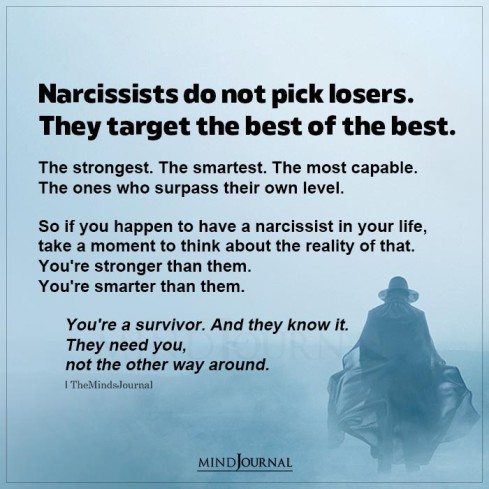
Is Our Childhood A Reason Why We Are Attracted To Narcissists?
For those of us who have been raised by narcissistic parents, the abandonment, criticism, rage and exploitation involved in a relationship with a narcissist can, unfortunately feel familiar. We may not consciously understand our attraction, but it can keep happening until we recognise our own trauma.
We can be transfixed by the unconscious desire to get the love we missed in childhood from a partner who reminds us of our narcissistic parent. If we just try a little harder maybe we will finally be loved in the way we longed for.
But its a losing game. As the relationship unfolds, we come to realise that the narcissist doesn’t actually care about us.
We were just a means to an end. When we cease being useful or have the temerity to ask for our own needs to be met, the narcissist may lose interest or become inexplicably enraged.
Related: Why Do You Keep Attracting Narcissists and How to Avoid Getting Involved With Them
Don’t beat yourself up if you continue to be attracted to narcissists. They project the tantalising potential to heal our childhood wounds. But they end up causing us more pain through a bewildering self-focus and lack of empathy.
For those of us who have had toxic parents, the cycle of self-blame feels all too familiar. We try harder and harder to get the love we want, but the relationship deteriorates into exhaustion, exploitation and ongoing emotional damage.
Narcissists can be intensely attractive to all of us, but for daughters of narcissistic mothers, the attraction can be off the scale.

Written by Amanda Robins
Originally Appeared On Amanda Robins Psychotherapy
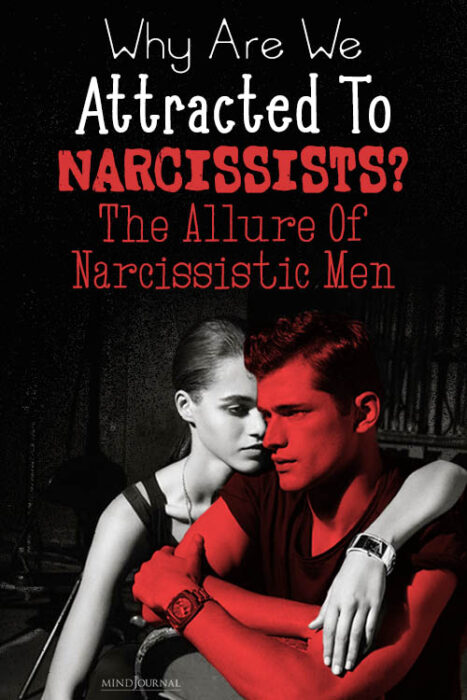

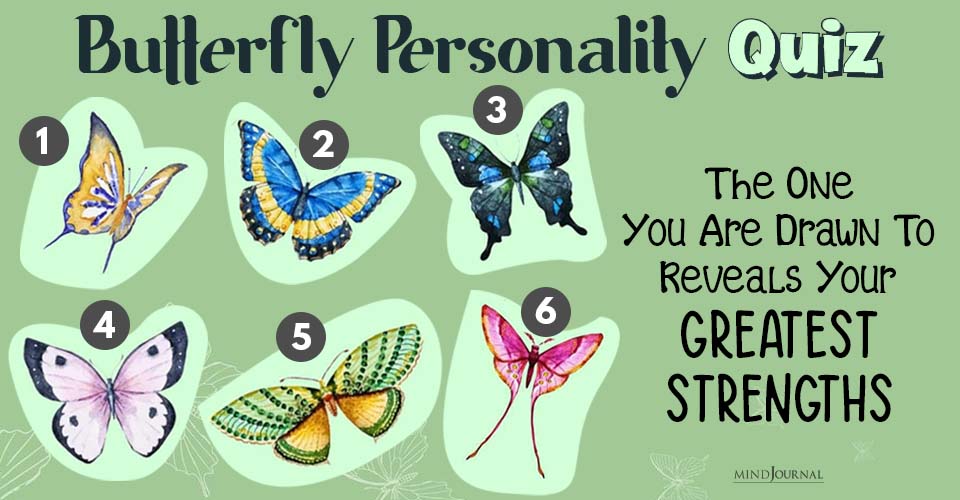








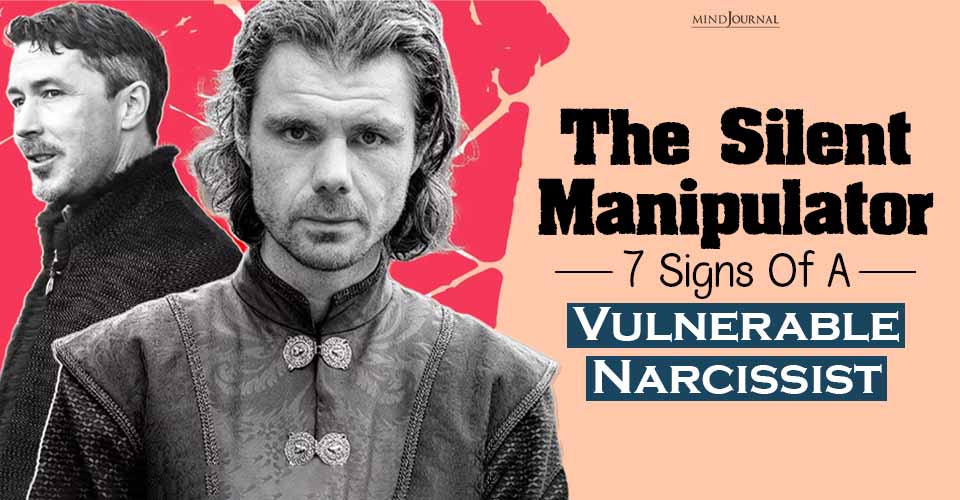

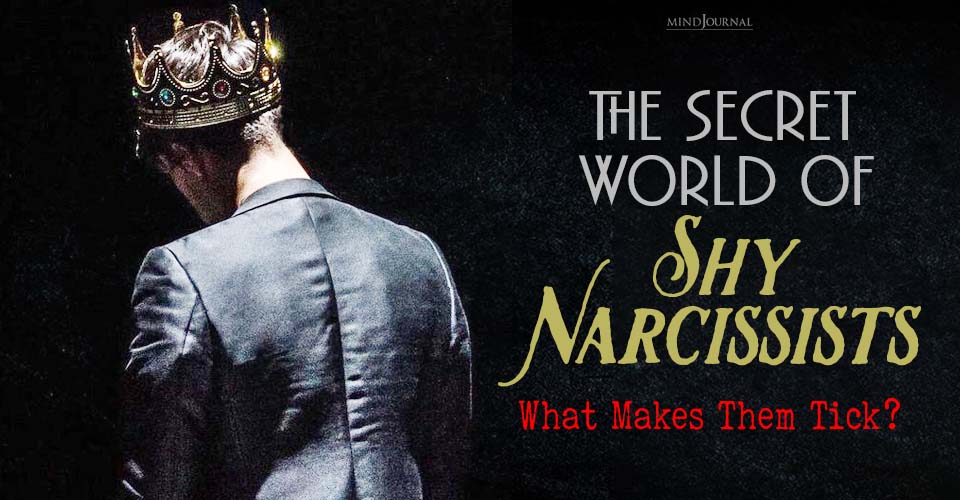
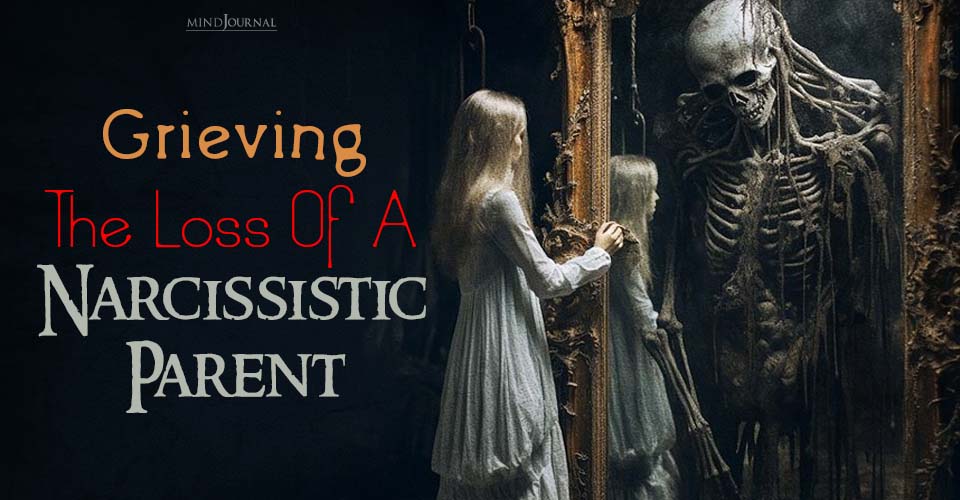
Leave a Reply
You must be logged in to post a comment.